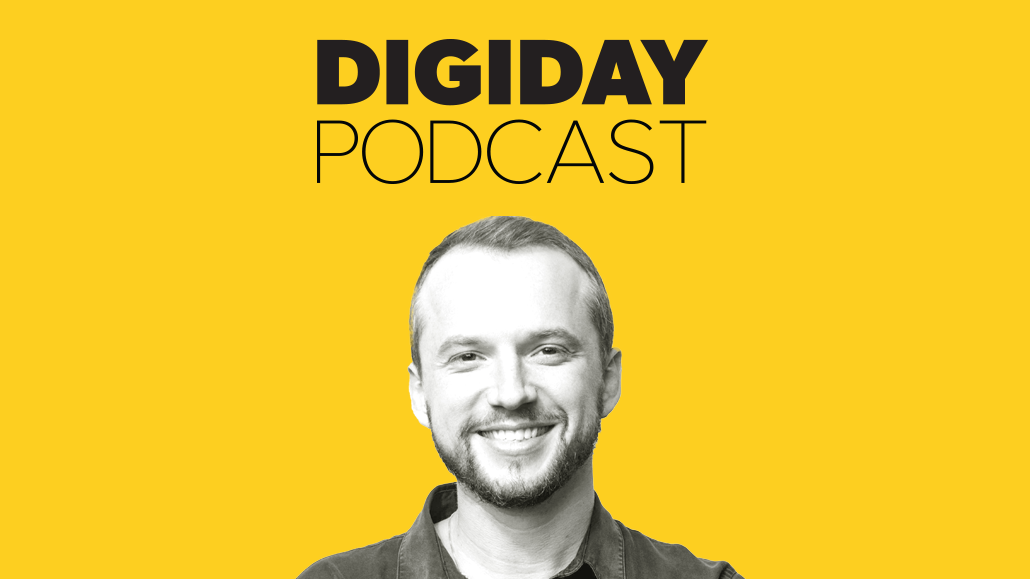Secure your place at the Digiday Media Buying Summit in Nashville, March 2-4
The Athletic’s Sebastian Tomich is looking beyond ads and subscriptions to reach profitability

Subscribe: Apple Podcasts • Spotify
Last September, The Athletic introduced ads to its business model for the first time (aside from podcast and newsletter ads that’ve been in the mix since the publication’s origins in 2016). This opened a door to revenue diversification, something the subscriptions-centered business had been lacking.
The path to profitability was originally set for 2023, and was later pushed back to 2025 after The New York Times bought the sports publication. To achieve this profit goal, The Athletic’s chief commercial officer Sebastian Tomich is focused on more than just selling ads directly to prospective advertisers. Programmatic advertising, ticket sales, sports betting partnerships, and licensing intellectual property to streamers to produce documentaries and scripted series are all priorities for 2023, he said on the latest episode of the Digiday Podcast.
Here are highlights from the conversation, which have been lightly edited for clarity and length.
The first meeting is always the easiest to get
I had the benefit of leading the charge for a company that’s getting into advertising for the first time. And so one of the benefits of that is that you’re always gonna get the first meeting. It’s the second and third meeting that become a lot more challenging to get, but I’ve got 1,000 clients to meet with just to show off what we’re doing. And I have to believe, I do believe and the team believes, that this is always going to be a meeting worth taking.
We are not seeing any type of challenge in terms of getting meetings. Of course booking ad dollars in a contracting market is always going to be more challenging than a growing market. But it helps a lot to be new. And also, there’s a huge benefit to being able to build something from the ground up. We’re not spending any time trying to unwind any legacy system or antiquated way of working with advertisers. We get to start fresh.
The programmatic tap is on — for the moment
It’s money, we can turn it on and off. And, personally, I have a bias towards great design and I tend to find that programmatic advertising can infringe on that. I’m always pretty cautious, particularly when you have a product where people are paying for it directly. So I’m never going to say programmatic is a central focus. Programmatic is a way to generate revenue [though] and again, you always have the opportunity to turn it off. It is on right now and it’s on as long as we need it.
The thing I will say to the team is the more we sell directly, the less we sell programmatically. So please sell more. And from a quality perspective, generally what I’m finding right now is it is benign. Of course there are things that come through that I don’t love, but they tend to be pretty isolated. And we’ve been able to maintain this healthy balance with getting some programmatic advertising in but at the same time maintaining the premium experience that makes people feel good about paying us directly.
Natural extensions into the world of sports
We are thinking of [ticketing, merchandise and betting] as ways that we can add value to sports fans’ lives. And they happen to also be ways we can make money too. But like betting or not, a sizable portion of our audience is betting on sports and so it makes sense for us to have some type of offering. In this case, we have great partners at BetMGM, we have betting content, we have exclusivity with them, we have been providing odds — we’re not doing affiliate marketing for them, so we’re not incentivizing people to bet — but for those who are interested, we have been a contact for them. The world of affiliate marketing is just something we’ve chosen not to pursue at the moment [but] I have learned now to never say never on anything.
In the case of ticketing, same thing, like what sports fan isn’t trying to go to a game. So again, it’s an opportunity for us to make money and also provide value back to the readers. We do not have a partner right now, but it’s something that we are very interested in pursuing.
More in Media

From feeds to streets: How mega influencer Haley Baylee is diversifying beyond platform algorithms
Kalil is partnering with LinkNYC to take her social media content into the real world and the streets of NYC.

‘A brand trip’: How the creator economy showed up at this year’s Super Bowl
Super Bowl 2026 had more on-the-ground brand activations and creator participation than ever, showcasing how it’s become a massive IRL moment for the creator economy.

Media Briefing: Turning scraped content into paid assets — Amazon and Microsoft build AI marketplaces
Amazon plans an AI content marketplace to join Microsoft’s efforts and pay publishers — but it relies on AI com stop scraping for free.








